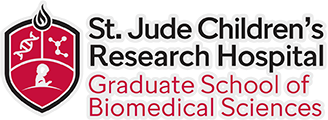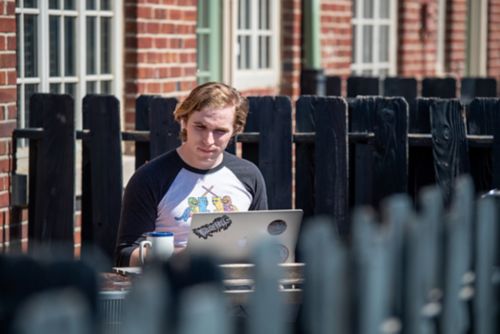For second-year PhD students in the St. Jude Graduate School of Biomedical Sciences, qualifying examinations, or “quals,” are a pivotal event of their graduate training. More of a trial than a test, the quals serve as a checkpoint for the faculty to confirm that a student is following a promising line of scientific inquiry and ready for full-time doctoral thesis/dissertation research.
By the day of a student’s qualifying exam, the thesis committee has read their research proposal and prepared a list of probing questions. The professors file into the conference room. The student is waiting there with handouts, a slide presentation, snacks, coffee and a bottle of water.
Facing the challenge of virtual qualifying exams
At least that’s how the quals were conducted before, and how they will be again, but not during a global pandemic. The 2020 qualifying exams are continuing by way of video conferencing as a result of COVID-19.
Sandi Radko-Juettner successfully presented her thesis strategy on pediatric rhabdoid tumors.
“It was less nerve-wracking because I was sitting in my home office,” Radko-Juettner said, “but I was nervous there would be a crash or glitch.” There was a glitch, but not until her presentation and Q&A were over.
Near the end of a traditional, in-person qualifying exam, students leave the room while the committee discusses their performance. That tradition has joined the virtual era.
“It felt…different to physically step out of my home office and close the door behind me,” Radko-Juettner said. Once the faculty members reached a consensus, her adviser phoned her, inviting her back into her empty room. Keeping the computer logged in to the meeting was a stable alternative to logging out and back in again.
“When I returned to my computer to learn their final decision,” she said, “I forgot I had turned off its speaker. They were trying to congratulate me for passing, but I was only staring back at them with a blank expression. After about a minute, they realized what was wrong, and we all had a good laugh.”
Andrea Lee, who is studying the immunogenicity of CRISPR Cas nucleases, agrees that working and re-grouping under prolonged physical isolation is off-putting, even in informal chats with her peers.
“We are so accustomed to being in the same room and getting a feel for what everybody is thinking or if they need you to clarify information,” Lee said, “but if you are seeing them through a little picture, it makes acquiring and using our non-verbal cues more difficult.”
Elizabeth Wickman, who is studying the development of CAR-T cell immunotherapy for treating solid tumors, enjoyed preparing for a remote qualifying exam.
“It was a fun challenge to take a presentation which involves a component of in-person performance and format it for a video call,” Wickman said. “I was still nervous, but I knew my committee members were asking me questions to help me with my project.”
Liam Hallada, who is studying the migration of neurons in the brain, depends on access to advanced microscopy for his research. Most of the basic research laboratories at St. Jude closed near the end of March, leaving the second-year students to complete their proposals with the data they had already collected. This actually helped Hallada in preparing for his qualifying exam.
“I didn’t have experiments to distract me from writing my proposal or practicing for my presentation,” he said.


